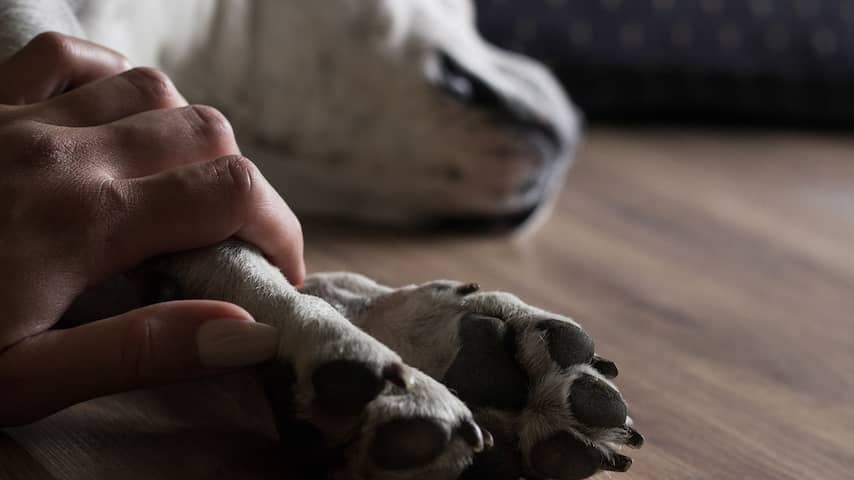
Nhaan, Janny van der Heijden’s beloved dog, has passed away. Grieving for a pet is painful and takes time. These tips can help with the loss of a beloved animal.
At Dierencrematorium Zaanstad, a deceased parrot of 62 years old was recently brought in. The bird had been with the family for fifty years, and its owners wanted to give it a beautiful farewell.
Everyone processes the loss of an animal in their own way, and the grief can be great, says Reni, founder and owner of Dierencrematorium Zaanstad. “We see many accidents here. For example, with a kitten that has been hit by a car, we see a lot of anger in addition to grief.”
When an animal you have taken good care of for years dies, it is the end of a long era in your life, says Reni. “We once had a few koi carp of twenty years. You might think: strange to bring a couple of fish here, but someone has taken care of them for half their life. Isn’t it nice that there is a place where they can end that period well?”
The death of a pet has no rituals
Mourning requires action, says Nienke Endenburg. She is a GZ psychologist and specializes in relationships between people and animals. She guides people through the grief of their lost pet.
“I had a client who made a painting for her pet, and someone else composed a song. I often suggest making a photo book of your pet. You can have the animal cremated and scatter the ashes, plant a tree for it. Or you can make something beautiful out of the grave.”
When a partner or family member dies, there are immediately many things that need to be arranged, says Endenburg. Such as the inheritance and emptying the house. That keeps people busy during that first period. There are also clear rituals. “With the loss of a pet, all that is not there, and the environment is often not very understanding.”
People are quick to suggest finding a new animal, she says. But your deceased pet with its own unique character is irreplaceable. The tip to buy a new pet is not at all comforting, says Endenburg. “It’s not a refrigerator.”
Comparing with human death is not necessary
The way an animal dies also plays a role in the grief and processing. Horrible scenarios in which euthanasia does not go well and an animal keeps screaming: that happens occasionally. Or an accident or illness in which a young animal dies while you expected to be together for a long time. “Talk to your veterinarian. And if the event is too traumatic for you, seek professional help,” advises Endenburg.
The comparison with the loss of a human does not have to be made, say both animal experts. Everyone experiences grief for a loved one in their own way.
Endenburg: “We know that 80 percent of pet owners consider their animal to be a full member of the family. A dog or cat lies in your bed, goes on vacation, out to dinner, you walk with it every day, for years. People can have a very close relationship with their animal.”
Not only with dogs and cats, but also with birds, horses, donkeys or rodents, says the psychologist. “And people with amphibians and snakes will contradict me if I say that you cannot have a close relationship with them.”
‘Value the little animal’
“It’s just an animal” is a remark that you should rather swallow when someone loses a pet, says Reni. “The death of a sister you see once a year is really less impactful for some people than the dog or guinea pig you live with for ten years. You don’t have to compare, value the little animal. It’s not ‘just an animal’.”
When it comes to grief processing, you should especially do what makes you feel good as an owner, according to Reni. “The environment may find it all a bit crazy, but you must be able to say goodbye properly.”
In the animal crematorium, music is played for the animal, people give a speech, put a cuddly toy in the coffin. They come alone or with the whole family.
“Some people have jewelry made with the ashes, or they scatter it. We often remove some tufts of hair and give them along in a bottle.” Recently, you can also opt for water cremation: an environmentally friendly cremation where you only keep the bones.
When will the pain lessen? The grieving process lasts an average of 8.5 months, Endenburg knows. And the stronger the bond with the animal was, the longer the grieving process lasts. Reni: “Someone who breaks a leg knows: in six weeks I can walk again. But if you lose a beloved animal, no one knows what to expect. People can end up in a circle of grief, from which they can only get out with help.”